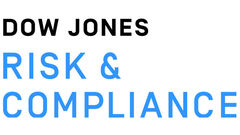
Compliance risks: Beware of the men in black hats
Is your company exposed to compliance risks? Are you mitigating against financial crime and reputational damage? Four steps to mastering the challenge.

Is your company exposed to compliance risks? Are you mitigating against financial crime and reputational damage? Four steps to mastering the challenge.
As a child growing up in the 1970s, I watched more than my fair share of Westerns: The Magnificent Seven, High Noon, Butch Cassidy and the Sundance Kid, and everything and anything featuring John Wayne. In the classic Westerns of the 1930s and 1940s, it was easy to identify the villain. He was the guy in the black Stetson. The heroes wore white hats, of course: The Lone Ranger atop his white horse, Silver, being the archetype. And, you knew that the man in the black hat would get his comeuppance in the final scenes of the movie. That was the way it worked. Simple.
Sadly, it’s not so simple these days. No reputable company would want to become – either directly or indirectly – involved in financing terrorism, using child labor, money-laundering, or bribery. However, identifying such risks in business can be tricky. Companies often have complex international supply chains that include many third parties. They may deal with partners, customers, suppliers, and other third parties such as banks and freight forwarders in a wide range of countries. You may have a tight rein on what happens within your own company – but what about the companies in your network?
Monitoring and managing these relationships effectively is important because the actions of companies in your network can impact your own business. Strict regulations govern business practices in a wide number of areas and it is crucial that you’re aware of the ones applicable to you. And it’s of equal importance that you have effective and holistic compliance programs in place to ensure that you stay within the law.
The price of violations can include fines and criminal charges. But, satisfying regulators is just one view on this. Reputational damages are perhaps of even greater importance given that corporate social responsibility is a key requirement from shareholders and customers. Plus, I’m sure you want to be one of the men in white hats, anyway. Let’s look at some areas you need to focus on to mitigate risk…
Protecting your business against compliance risk and reputational damage is challenging. It’s not so easy to distinguish the men in black hats from the men in white hats. But, don’t worry. The good news is that the steps listed above can be automated with software. AEB partners with content specialist Dow Jones to provide more than "just" restricted party screening:

Bans on indirect provisions? PEP List? Adverse Media? Comprehensive security for your transactions with AEB software and extended content from Dow Jones.